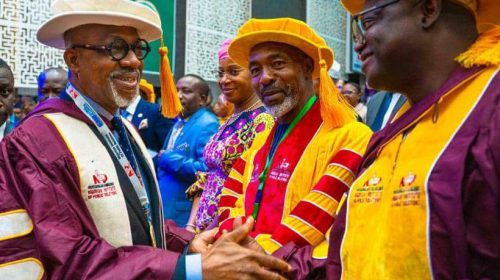Nigerian Textile Industries Have Potentials To Creat 2m Job, Reduce $4bn Import Bills – Emefiele

The Governor of the Central Bank of Nigeria (CBN), Mr Godwin Emefiele, says the Nigerian Cotton, Textile and Garment (CTG) sector holds huge potentials to create more than two million jobs and reduce 4.0 billion dollars import bill incurred annually on textile.
Emefiele said this at the meeting with the Service Chiefs and stakeholders from CTG industries on the present administration’s drive to revive the sector, in Abuja on Thursday.
He explained that the sector also had the capacity to transform Nigeria’s rural economy and revive the textile and garment industries by improving internal revenue across three tiers of government.
He said by achieving that, it would safeguard and earn foreign exchange and ultimately accelerate industrial development by making Nigeria a global player in the textile and apparel sectors.
“This event, therefore, symbolises our commitment to attain self-sufficiency in cotton production, to serve the Textile and Garment segments of the value chain with quality input, as we target zero importation by the year 2020.
“This event, therefore, symbolises our commitment to attain self-sufficiency in cotton production, to serve the Textile and Garment segments of the value chain with quality input, as we target zero importation by the year 2020.
“The CTG sector is however faced with some systemic challenges which has hampered and diminished its role as the leading employer of labour, thereby preventing its contribution to Nigeria’s GDP.
“In the 1970’s and early 1980’s, Nigeria was home to Africa’s largest textile industry, with over 180 textile mills in operation, which employed close to over 450,000 people and contributing over 25 per cent of the workforce in the manufacturing sector.
“Today, most of the factories have all stopped operations, as only 25 textile factories are operating today at below 20 per cent of their production capacities, and the workforce in Nigeria’s textile industry stands at less than 20,000 people,” he said.
“In the 1970’s and early 1980’s, Nigeria was home to Africa’s largest textile industry, with over 180 textile mills in operation, which employed close to over 450,000 people and contributing over 25 per cent of the workforce in the manufacturing sector.
NAN






Leave a Reply